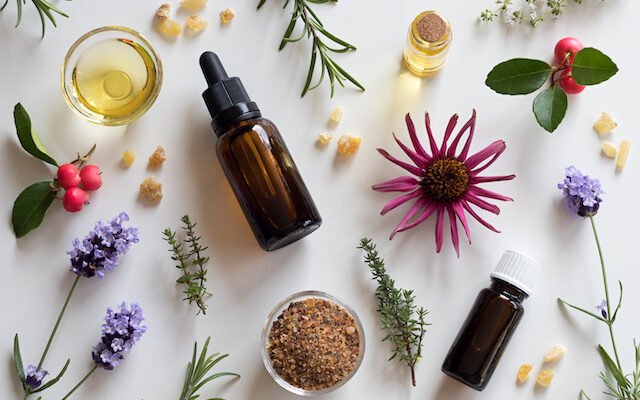In recent years, essential oils have gained immense popularity as a natural approach to health and wellness. These concentrated plant extracts offer a plethora of benefits, from reducing stress to improving sleep and even boosting immunity. If you’re new to essential oils, this comprehensive guide will walk you through everything you need to know to incorporate them into your daily routine effectively and safely.
What Are Essential Oils?
Essential oils are highly concentrated extracts derived from plants. Through processes like distillation or cold pressing, the natural oils in flowers, leaves, stems, roots, or fruits are captured and transformed into a potent product. These oils carry the plant’s scent and unique therapeutic properties, making them a cornerstone of aromatherapy and holistic wellness.
The Science Behind Essential Oils
Essential oils contain active compounds such as terpenes, esters, and phenols, which interact with the body to provide various health benefits. For example:
- Linalool (found in lavender): Promotes relaxation and reduces anxiety.
- Eucalyptol (found in eucalyptus): Enhances respiratory health.
- Menthol (found in peppermint): Provides cooling and soothing effects.
Top Benefits of Essential Oils

1. Stress Reduction and Emotional Balance
Essential oils like lavender, chamomile, and bergamot are well-known for their calming properties. When inhaled or diffused, they can reduce cortisol levels and promote a sense of relaxation.
How to Use:
- Add a few slides to a diffuser for a relaxing atmosphere.
- Combine with a carrier oil for a soothing massage.
2. Improved Sleep Quality
If you struggle with insomnia or restless nights, essential oils such as cedarwood, lavender, and sandalwood can help regulate sleep patterns.
Pro Tip:
- Create a bedtime ritual by applying a diluted oil blend to your wrists or pillow.
3. Enhanced Immune Function
Certain oils like tea tree, eucalyptus, and oregano possess antimicrobial and antiviral properties, making them a valuable tool during cold and flu season.
How to Use:
- Diffuse in your home to purify the air.
- Dilute and use to the soles of your feet for resistant sponsorship.
How to Use Essential Oils Safely
1. Dilution Is Key
Essential oils are highly potent and should never be applied directly to the skin without dilution. Use a carrier oil like coconut, jojoba, or almond oil to minimize the risk of irritation. A safe ratio is 1–2% essential oil (6–12 drops per ounce of carrier oil).
2. Patch Testing
Before using a new essential oil, perform a patch test to ensure you don’t have an allergic reaction. Apply a diluted mixture to a small area of your skin and monitor for 24 hours.
3. Avoid Ingestion
While some essential oils are marketed as safe for consumption, it is crucial to consult a healthcare professional before ingesting them. Misuse can lead to severe health complications.
Best Essential Oils for Beginners
If you’re just starting, consider these versatile and easy-to-use oils:
- Lavender: Relaxation, sleep, and skin health.
- Peppermint: Energy boost, headaches, and digestive support.
- Lemon: Uplifting mood, cleaning, and detoxification.
- Tea Tree: Skincare, wound healing, and antimicrobial benefits.
- Eucalyptus: Respiratory health and muscle relief.
How to Choose High-Quality Essential Oils
1. Look for 100% Pure Oils
Ensure the label states “100% pure essential oil” with no added synthetic ingredients or fillers.
2. Check for Latin Names
Authentic essential oils should list the plant’s Latin name, e.g., Lavandula angustifolia for lavender.
3. Packaging Matters
Essential oils should be stored in dark glass bottles to protect them from sunlight and oxidation.
4. Trusted Brands
Choose reputable companies that provide transparency about sourcing, testing, and sustainability. Look for certifications like GC/MS testing to verify purity.
Simple DIY Recipes with Essential Oils

1. Relaxing Pillow Spray
- 4 oz distilled water
- 10 drops of lavender essential oil
- 5 drops of chamomile essential oil
- Combine in a spray bottle and mist your pillow before bedtime.
2. Energizing Room Diffuser Blend
- 3 drops of orange essential oil
- 2 drops peppermint essential oil
- 1 drop of rosemary essential oil
- Add to your diffuser for a refreshing aroma.
3. All-Natural Cleaning Spray
- 1 cup water
- 1 cup white vinegar
- 20 drops of lemon essential oil
- 10 drops of tea tree essential oil
- Mix in a spray bottle and use on countertops.
Precautions and Contraindications
While essential oils offer many benefits, they aren’t suitable for everyone. Pregnant women, children, and individuals with certain medical conditions should consult a healthcare provider before using essential oils. Always adhere to recommended dosages and avoid prolonged exposure.
Conclusion
Essential oils are a versatile and natural way to enhance your wellness journey. From relieving stress to boosting your immune system, their applications are virtually limitless. By choosing high-quality oils and using them safely, you can unlock their full potential and enjoy the transformative benefits they bring.

